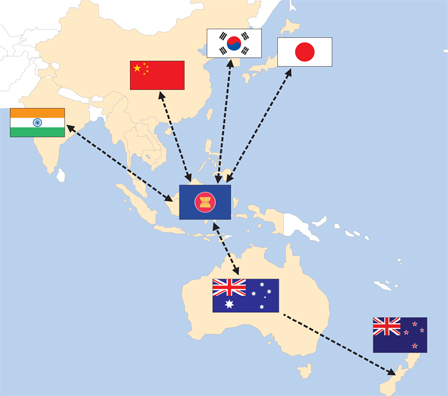|
Hullabaloo over ETCA:
Are we at risk of becoming economically isolated?
by Gomi Senadhira
A friend of mine looked up from the newspaper he was reading and
asked, "Are we at risk of becoming a new North Korea?" Was it a
rhetorical question thrown at me? Had he spotted some bad news about Sri
Lanka hidden in some inner pages of The Times that he was reading?
 Fortunately, no. My friend was talking about his country and not
mine. The news was about a statement by former UK Prime Minister Gordon
Brown, who had said, "Britain risks becoming a new North Korea". Fortunately, no. My friend was talking about his country and not
mine. The news was about a statement by former UK Prime Minister Gordon
Brown, who had said, "Britain risks becoming a new North Korea".
Brown, commenting on the campaign for Britain to leave the European
Union, had said "...we must talk about how the Hong Kong option -
'leaving Europe to join the world'- is really the North Korean option,
out in the cold with a few friends, no influence, little new trade and
even little new investment"...it would be "sheer defeatism to cast
ourselves, as sceptics do, as a helpless victim, impotent bystanders
unable to influence events. Our destiny is not a bit player on someone
else's stage, or spectator hectoring from wings, but always setting the
agenda, bringing people together".
That was almost one year ago. But with the ongoing hullabaloo on the
Economic and Technical Cooperation Agreement (ETCA) and the pressure by
protectionist groups to stay away from any trade arrangement that
involves India (or any other country), Brown's warning may apply to Sri
Lanka more than the United Kingdom.
ETCA or beyond ETCA
Unlike the members or the spokespersons of various professional
associations in Colombo, I am unable to pass any judgment on ETCA. All I
know about ETCA is - it is currently at the very early stages of
negotiation and 'is more limited in scope' than CEPA.
In other words, ETCA is sort of a CEPAlite, a CEPA minus. The groups
which are now protesting against ETCA earlier managed - with
misinformation and street demonstrations - to keep Sri Lanka out of CEPA.
In doing so they also kept Sri Lanka out of all new trade negotiation
initiatives at bilateral, regional and global levels.
Meanwhile, our Asian neighbours were busy negotiating comprehensive
trade deals - more comprehensive than CEPA, we negotiated with India -
among themselves and others.
For example, India, during the recent past, had concluded EPAs with
Singapore, Malaysia, Japan and Korea and currently is at various stages
of negotiation of FTAs and EPAs with a number of countries and regional
groups.
Asia's RCEP
Malaysia had set up FTAs and EPAs with Japan, Pakistan, New Zealand,
India, Chile and Australia. The ASEAN has concluded FTAs with China,
Japan, Korea, India, Australia and New Zealand. In essence, all our
neighbours (other than SAARC, LDCs and North Korea) are pursuing very
ambitious Economic Partnership Agreements with their neighbours and main
trading partners.
Finally, Asia is also negotiating its own mega-regional trade deal -
Regional Comprehensive Economic Partnership (RCEP).
The RCEP is being negotiated between ASEAN (Brunei, Myanmar,
Indonesia, Singapore, Malaysia, Thailand, the Philippines, Cambodia,
Laos and Vietnam) and her FTA partners Australia, China, India, Japan,
Korea and New Zealand. It aims to set up a mega trade group in Asia - an
Asian market of over three billion people and GDP of around USD 21
trillion.
Only a few countries in Asia are not in the RCEP negotiations. These
include North Korea, Sri Lanka, Pakistan and the South Asian LDCs. Of
these countries, Pakistan which earlier mainly looked towards Western
and Central Asia for trade arrangements had already negotiated FTAs with
China and Malaysia and is at various stages of FTA talks with other
ASEAN countries.
Bangladesh which is spearheading a deal on non-reciprocal duty free
market access for all LDC exports through WTO negotiations is also
conducting a feasibility study on the possibility of joining RCEP in the
future.
 In essence, even countries outside RCEP have active trade agendas on
their own and strategies for future market access to RCEP countries and
beyond. It appears that the only countries in Asia without a clear
policy towards ongoing pan-Asian trade negotiations are Sri Lanka and
North Korea. In essence, even countries outside RCEP have active trade agendas on
their own and strategies for future market access to RCEP countries and
beyond. It appears that the only countries in Asia without a clear
policy towards ongoing pan-Asian trade negotiations are Sri Lanka and
North Korea.
Sri Lanka and ASEAN
Sri Lanka was interested in closer relations with ASEAN long before
her FTA partners talked about enhanced relations with the group. In fact
Sri Lanka considered joining ASEAN at its very inception in 1967.
We again attempted to join the group in the early eighties. Why did
we do that? According to someone who was privy to those negotiations,
Sri Lanka did that with the "...hope of breaking away from its moorings
in South Asia and becoming a trading nation with links to Southeast and
East Asian nations and to all of littoral Asia".
The main reason or the excuses for not joining at that stage
according to the same observer was, "...the Government came under
pressure from the Left parties and also from India which feared that its
sphere of influence might be eroded". China and the Soviet Union also
opposed the move. Some non-aligned countries also felt that Sri Lanka
would be giving up its policy of non-alignment."
If that was so, then what stopped us from trade agreements with ASEAN
and also with China, Japan, South Korea, particularly after India, and
China started FTA negotiations with these countries?
CEPA - a four letter word
Unfortunately these ongoing negotiations - like all other trade
negotiations this century - are negotiations for Economic Partnership
Agreements which are comprehensive in nature. In other words CEPAs -
which in Sri Lanka is a prohibited four letter word. Because unlike the
rest of Asia, we in Sri Lanka are wiser (like our comrades in North
Korea) and know CEPAs are bad for us. Ask our professional associations
- particularly doctors and engineers - they would certainly confirm that
CEPAs are bad for our health and are structurally defective.
While Asia and the world have opted for CEPA Plus (that is more
comprehensive than the CEPA we negotiated with India) approach for trade
negotiations, Sri Lanka is struggling with a CEPA minus arrangement.
Unfortunately, that approach had left us with the North Korean
option. Sri Lanka's position had declined from a country that was
involved in setting the agenda for trade negotiations at the beginning
of this century to a 'spectator hectoring from the wings' by the end of
the first decade.
At the beginning of the century Sri Lanka was exploring ways of
obtaining better market access to our traditional markets and developing
new markets for non-traditional exports through new trade agreements.
Then we abandoned those efforts and opted for protectionist policies.
The impact of these protectionist policies on Sri Lanka's exports is
clearly reflected in our export numbers. During the past 10 years Sri
Lanka's share of exports to the world significantly declined - first as
a percentage of world's exports and a percentage of the GDP and finally
in absolute terms. Hence it is the time to reconsider our options in an
open and transparent manner.
Need for trade policy agenda
It is time for Sri Lanka to develop a clear trade policy agenda. A
trade policy agenda that supports our workers and creates jobs through
trade; An agenda that supports, safeguards and expands our traditional
markets in Europe, America, the Middle East and elsewhere; An Agenda
that guarantees our due share in fast growing Asian markets - in India,
China, Japan, Korea and ASEAN; An agenda that opens for us the emerging
markets in Central Asia through Pakistan; and finally an agenda that is
open for public debate.
Yet while developing and engaging in a public debate on the trade
policy agenda, we also have to move forward and move very fast, as we
are already far behind the rest of Asia. For all that, ETCA may not be
enough - but certainly is a good place to start with. The writer is a
former Director General of Commerce. He can be reached at [email protected]
|

